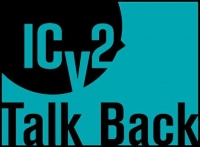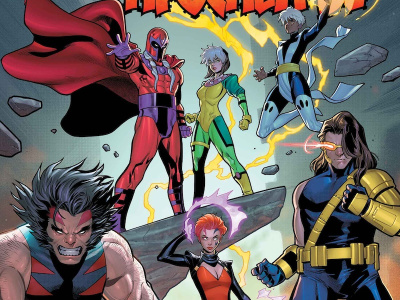 Nick Smith of the Pasadena Public Library in Pasadena, California read Ed West's comments on the top censored RPGs coverage (see "Ed West on Top Censored RPGs" and "The Top Censored RPGs") and had this to say.
Nick Smith of the Pasadena Public Library in Pasadena, California read Ed West's comments on the top censored RPGs coverage (see "Ed West on Top Censored RPGs" and "The Top Censored RPGs") and had this to say.Ed West made some very good points about the rights and responsibilities of parents, but I think the issue is the use of the word "censor." To me, coming from a library background, a censor isn't the person who wants to interact with their own children and guide what they are reading or doing. A censor is the person who wants to make that decision for everyone else's child as well, and maybe adults too.
It is true that parents can easily react to the unfamiliar by wanting to keep away from it, and to keep their children away from it. That is a natural reaction, although it can sometimes be over-reactive and over-protective. My own experience is that the censor is so certain that his or her own values are the "correct" ones that it never occurs to them to learn about the unfamiliar, or even to learn from it. That is the danger, that the censor is sometimes both uninformed and overly assertive in their own beliefs and standards. In the extreme case, a censor may be someone with views outside the mainstream, and who wants their own version of reality supported more. Worst case, the censor steps on the rights of other people in their quest for a comfortable world view. Extreme cases, such as book burnings, are the visible horror stories. The real danger, and the more common one, is the attempt to deny readers, viewers or game players the opportunity to express their own opinions, their own judgment, and their own principles.
As an adult, it was my choice to not buy the game Killer. I would be uncomfortable with someone else deciding that I was not allowed to buy it, even if I thought it was a bad game idea. As an adult, it was my choice to play fantasy role-playing games, even if there were people who didn't understand them, or somehow thought that they were evil, by their own belief systems.
In the library world, books are challenged all the time, mostly for making someone uncomfortable with their own view of the world. In our library system, Maus was challenged over its portrayal of the Poles. The challenge was made by a Polish-American who is very proud of his heritage, and who had made other suggestions about adding books on Polish history, for our library's collection, so it was not out of the blue. T he thing is, Maus made him uncomfortable, so he didn't want other people to read it. That is censorship, as opposed to parental guidance.
The opinions expressed in this Talk Back are solely those of the writer, and do not necessarily reflect the views of the editorial staff of ICv2.com.







